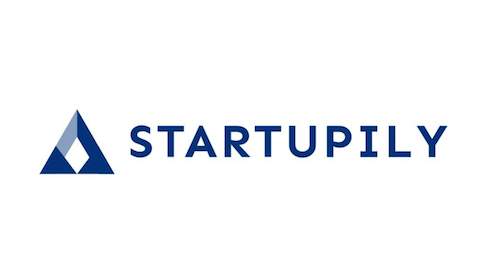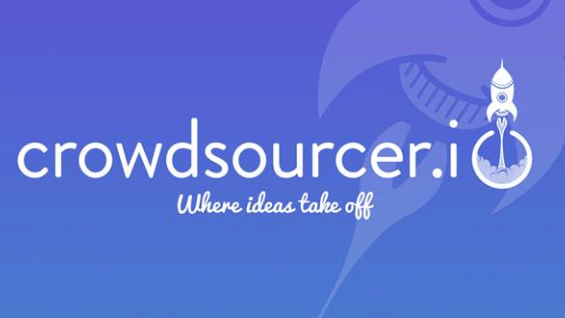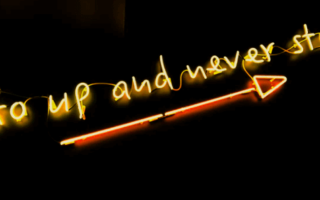Introduce yourself and tell us about Crowdsourcer?
Hi, I’m Mike, the founder of Crowdsourcer.io a profit-sharing and collaboration platform. Our product fits into the venture formation world where failure rates for startups are incredibly high. And even though Crowdfunding has gone some way to filling this gap, it’s still far from perfect and many startups still struggle to develop, form and grow. That’s what we’re trying to solve. We do this by turning everything on its head.
While in Crowdfunding people invest their money and get some kind of product or reward for doing so, in our model people invest their expertise and their time and in return get a share of the profits.
On top of that, we have a whole suite of project management tools added in for good measure which we think will enable SME/Micro-venture formation even further.
We’re currently targeting software developers, programmers, designers, etc. as this model works perfectly with remote workers and the software industries.
What is unique about Crowdsourcer?
I suppose a desire for it myself, but also from a desire to create social change. I’ve been programming for decades and in this time I’ve experienced both ends of the crazy world of tech, from blood-sucking rent-a-coder websites to the awesome world of open-source software.
The thing that’s got me is that I’ve always wanted to work collaboratively and (importantly) creatively with communities of people, but there’s never really been a solid way to do so outside of just freelancing. I’ve always thought that there must be a better solution for groups of people to create commercial products together, but not only to do so effectively but to do so fairly and equitably without conflicts of interest or inequality in the distribution of profits.
What do you wish you knew before starting Crowdsourcer?
How long everything was going to take. Growing your user base is hard, scaling is hard, raising finance is hard – all of it is hard and that means it takes a while to achieve those goals.
Businesses don’t explode as you think they will (that’s a massive Unicorn Bias from Silicon Valley) and even the largest companies took many years to get to any semblance of “big”. Knowing this would have radically changed how I approached my development and expansion.
How are you marketing your business?
Ah, the Ultimate Question! From my experiences, there is no silver bullet shy of a huge wodge of cash, and even then, you’ll be doing the same things everyone recommends. For us, we find engaging with communities of developers really helps, as well as the staples of ad spend and content marketing.
What did you learn from your biggest failure?
Easy. Be able to answer the questions you’d expect to be asked when you’re a larger company, from day one. Even if you don’t believe your answers will come to fruition or have any meaning, thinking about them will make you think about the future of your company and will prevent situations where you humiliate yourself in front of a 200+ audience during a Q&A.
What advice would you give a new entrepreneur?
Think cash flow from day one. It seems obvious, but it’s easy to not do. The pitfall we found was that we’d built the platform to make cash only after users had been using the site for months, if not years! That’s all good and well if you grow quickly, but if you can bring that cash earlier in the lifecycle of your users, you’ll make your life 10x easier.
What are your companies Unique Selling Point (USPs)?
Well, no one is doing what we do, and that means providing technicals with a way of creating businesses together:
- Without undertaking financial risk.
- Without quitting their day job.
- While working as much or as little as they want.
- Earning profits fairly and equitably.
- Remaining ambitious in their project scope.
- Whilst being able to work with other technical experts who can do what they can’t!
What sacrifices did you make to become a successful entrepreneur?
Probably a stable income and social working hours. Those two have gone out of the window. There’s also a great deal of mental stress and pressure that you put on yourself. When you’re the only person who can make things happen, you end up thinking about how you can make it happen most of your waking day. This will and does impact your life.
What is your favorite book and how has it helped with your business?
This is a funny question because I’m probably going to answer it more literally than intended. My favorite books are The Lord of the Rings (or any books in Tolkien’s Legendarium) and they’ve helped me get through the copious amount of driving I now do when they’re in Audiobook form. It makes a massive difference and takes the edge off long-distance traveling. On a more figurative note, there are many good morals, anecdotes, and lessons to be learned from Tolkien. I mean The Silmarillion is virtually a Bible.
What is your future goal for the company?
Grow, improve, change the way we work (for the better, of course).
What has been your most satisfying moments in business?
I couldn’t put my finger on specific things as there are many. Whether it’s releasing a new feature that your customers want, or getting people excited about your platform, there are many little things that make the whole venture worthwhile. That’s what keeps you going really, those little titbits of progress that satisfy you immensely whilst you think “I made that happen”.
Contact Details:
Slogan: “Where ideas take-off”
Tagline: “Crowdsourcer.io is a web platform where people can collaborate on projects and earn a fair share of the profits based on their contribution.”
- Zirtue
- Your Complete Guide to Mask Wearing
- Writing a Business Plan
- Work From Home Burnout and Zoom Fatigue is a Lot More Complex Than You Think
- Women Entrepreneurs in a Startup World
- Why Your Startup Should Start as It Means to Go On




